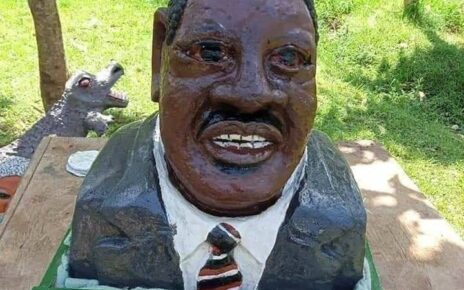An age-old English proverb states, “power corrupts, and absolute power corrupts absolutely.” This adage perfectly captures the trajectory of Simon Gicharu during the Jubilee administration. Initially finding himself in a position of immense power and surrounded by influential figures like Uhuru Kenyatta, Gicharu now faces a starkly contrasting reality, devoid of significant power or influential connections.
At one juncture, Gicharu played a vital role as a financial supporter for Raila Odinga’s Azimio la Umoja Presidential campaign, generously contributing to Uhuru Kenyatta’s campaign during the presidential elections. He served as a key advisor during the campaign, which unfortunately faltered and lost to William Ruto in the 2022 transitional elections.
Due to his close association with Uhuru Kenyatta, Gicharu secured appointments in prominent government parastatals. Furthermore, his university received government support through student capitation in private universities. Many viewed this move as a scheme orchestrated to benefit Gicharu personally. However, he soon found himself entangled in various scandals and faced accusations of misconduct.
One major scandal involved Gicharu’s ownership of Mount Kenya University (MKU) and its alleged involvement in a land-grabbing scheme. The university constructed a satellite campus on 100 acres of land in Turkana County, which was later controversially sold to the government for a staggering sum of Sh1.2 billion. It came to light that the government essentially paid for its own land, as the scheme was orchestrated by Gicharu and corrupt Ministry of Education officials. Fred Matiang’i, who was the Minister for Education at the time, was implicated in this scandal.
Furthermore, allegations arose of a fallout between Gicharu and President Ruto’s core team, with accusations that Gicharu sympathized with Raila Odinga. President Ruto denounced these individuals as anti-government crusaders and economic terrorists seeking to undermine the government’s functioning.
Although the Ethics and Anti-Corruption Commission (EACC) closed its investigation into the sale of MKU Turkana Campus to government-owned Masinde Muliro University, it is believed that a complex and scandalous maneuver took place through the Ministry of Education. This maneuver involved using taxpayer money for Masinde Muliro University to purchase property developed on unlawfully acquired public land. The funds for this transaction were routed through an account at Equity Bank, Thika Branch. The process was initiated through a fraudulent law firm named Okoth and Co. Advocates.
Upon discovering that his firm was being fraudulently used by Mount Kenya University, Okoth demanded 68 million for conveyance fees through Kipkenda and Co Advocates.
Once a prominent institution in the country, Mount Kenya University (MKU) now faces the risk of losing government-sponsored placements. A member of the Education Committee revealed that the government, through parliament, has initiated a process that may result in the university, along with Catholic University of East Africa (CUEA) and Daystar University, losing the disbursement of billions of shillings through a program believed to have been initiated by influential figures in the education system.
The imminent loss of government-sponsored placements spells doom for private universities, which have relied on such support to navigate financial turmoil amidst struggling public universities. An MP from the Western Region emphasized that the State Department for Higher Education and Research, through the Kenya Universities and Colleges Central Placement Service (KUCCPS), should refrain from placing new government-sponsored students in private universities.
It is widely believed that the policy to admit private students into government-sponsored placements, introduced in 2016, was influenced by Simon Gicharu’s political connections and influence.



